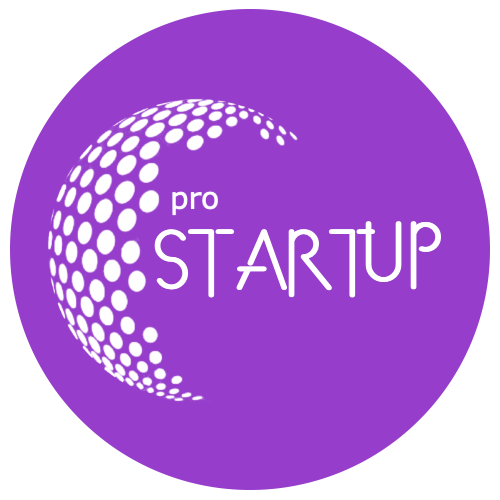Ad
In this article
- AAPL
Follow your favorite stocksCREATE FREE ACCOUNTApple CEO Tim Cook (L) and Apple chief design officer Jony Ive (R) look at the new Mac Pro during the 2019 Apple Worldwide Developer Conference (WWDC) at the San Jose Convention Center on June 03, 2019 in San Jose, California.Justin Sullivan | Getty Images
Before Jony Ive left Apple in 2019, no major Apple hardware launch was complete without a video highlighting the product’s physical design, narrated by Ive’s gentle British accent.
He became a touchstone in Silicon Valley for great hardware because of his role in the creation of the iPhone and Apple Watch.
On Wednesday, Ive returned to the computer industry with a new video, but it wasn’t launching a new Apple product. Instead, Ive announced a $6.4 billion deal that will merge his nascent hardware firm, called io, with OpenAI. Ive will head up the design for a new series of AI hardware products.
The announcement underscores the growing sense in Silicon Valley that smart artificial intelligence assistants could upend the gadget world, displacing the laptops and smartphones that Apple currently builds with new products that look and function totally differently.
“Tech shifts like the internet, the smartphone, and AI only happen once in a generation. OpenAI is catalyzing this shift into something tangible,” longtime Apple analyst Gene Munster posted on X on Wednesday.
Even Apple executives have said that AI hardware could threaten its iPhone business.
Eddy Cue, Apple’s chief of services, said in court earlier this month that he believes AI devices could replace the iPhone within 10 years, “crazy as that sounds,” he said.
“AI is a new technology shift, and it’s creating new opportunities for new entrants,” Cue said.
Meanwhile, Apple’s big improvement to its built-in assistant, Siri, was delayed earlier this year.
One of the core features of Apple Intelligence, the company’s suite of AI features, was the integration with OpenAI for ChatGPT to handle the queries that Apple Intelligence couldn’t. And Siri still functions like a question-and-answer system, instead of a fluent conversationalist, like ChatGPT or Google’s Gemini.
Apple’s next opportunity to show off what it’s been working on is on June 9 at its annual WWDC conference in Cupertino. It’s where Apple first revealed Apple Intelligence last year, and where it typically announces its latest software for iPhones, iPads, and Macs.
OpenAI’s announcement was light on details about what kinds of products the new OpenAI hardware workforce will design and build. The company says that it will show off what it’s working on next year.
The next big thing
Wednesday’s announcement should serve as a wake-up call to Apple now that its former guru is working with the fastest-growing company in Silicon Valley to build products that could eventually threaten its position at the top of the hardware industry.
As Ive put it in the launch video: “I am absolutely certain that we are literally on the brink of a new generation of technology that can make us our better selves.”
Sam Altman, OpenAI’s CEO, said he was excited to partner with Ive to “try to create a new generation of AI-powered computers.”
Humane’s AI Pin is equipped with a voice assistant and camera.Arjun Kharpal | CNBC
While Ive will continue to head up his design firm called LoveFrom, OpenAI is getting an injection of full-time talent with Apple backgrounds.
Scott Cannon, Tang Tan and Evans Hankey, all Apple design veterans, and co-founders of io, are joining OpenAI.
While there hasn’t been a hit AI consumer hardware product yet, several startups have tried to create devices that use AI to shrink their physical footprints and simplify the user experience.
Former Apple employees founded Humane, which created a small pin with a projector that could make calls and answer questions. Humane’s $700 product didn’t sell and the company was sold to HP.
Early adopters can also buy the Rabbit R1, a small square gadget that costs $199 and uses an OpenAI model to answer questions. Reviews for the gadget were bad. Ive told Bloomberg on Wednesday they were “bad products.”
Apple’s megacap rivals are increasingly seizing on AI-powered assistants as a way to differentiate their products as well.
Meta employee Sara Nicholson poses with the Ray-Ban sunglasses at the Meta Connect annual event at the company’s headquarters in Menlo Park, California, U.S., September 24, 2024. Manuel Orbegozo | Reuters
Meta’s Ray-Ban smart glasses have been a pleasant surprise in the marketplace, with over 2 million pairs sold, and the Facebook parent is running ads where the glasses can answer questions conversationally using the company’s Llama AI models in addition to capturing video with the glasses’ built-in cameras.
On Tuesday, Google, which competes with Apple through its Android mobile operating system, announced a slew of new AI models and features, including a full video generator, and new smartglasses prototypes running software called Android XR that will be made by companies like Warby Parker.
Google also said that its Gemini assistant could go into “agent mode” to get stuff done — similar to Apple’s delayed Siri improvement. While Google brings most of its Gemini features to the iPhone through its apps, users can’t make it the default assistant option over Siri.
Representatives for Apple and OpenAI didn’t return requests for comment.
Ad
SomaDerm, SomaDerm CBD, SomaDerm AWE (by New U Life).


